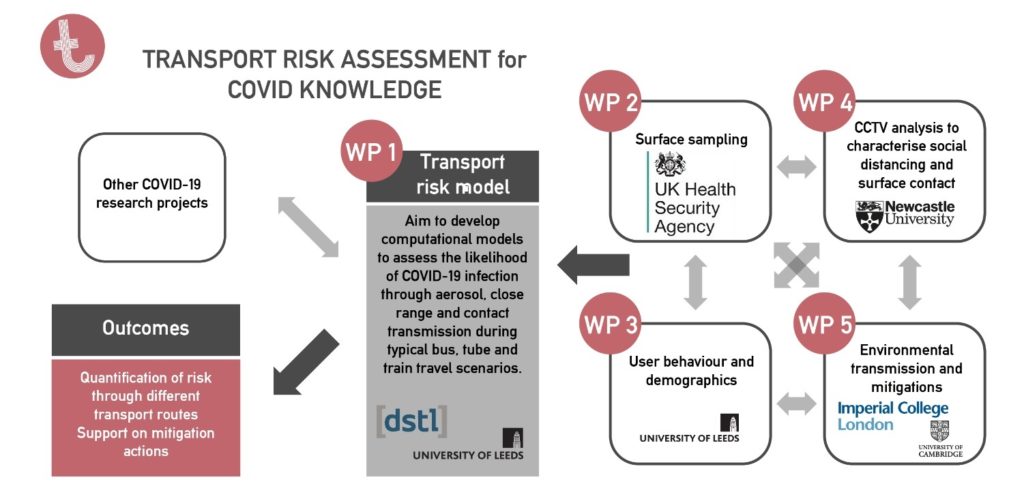TRACK is a multidisciplinary project designed to address knowledge gaps around COVID-19 transmission on public transport. TRACK has developed a novel risk model that can simulate infection risk through three transmission mechanisms (droplet, aerosol, surface contact) within different transport vehicles and operating scenarios.
New data is being collected on public transport in Leeds, Newcastle and London:
- Air and surface samples are being collected to measure SARS-CoV-2 prevalence together with other human biomarkers as a proxy measure for pathogens.
- User and staff travel behaviour and demographics are characterised through surveys and passive data collection to relate public transport use to geographic and population sub-group disease prevalence.
- The proximity of people and their surface contacts are being quantified through analysis of transport operator CCTV data to enable simulation of micro-behaviour in the transport system.
- The dispersion of infectious droplets and aerosols with different environmental infection control strategies are being evaluated using physical and computational models.
We are combing data sources to develop probability distributions for SARS-CoV-2 exposure and simulate transmission risk through a Quantitative Microbial Risk Assessment (QMRA) framework.

Working closely with Department for Transport (DfT) and transport stakeholders, TRACK has provided microbial and user data, targeted guidance and risk planning tools to directly enable better assessment of infection risks for passengers and staff using surface public transport networks, and help policy teams design effective interventions to mitigate transmission.
TRACK is a collaboration between Leeds University; Cambridge University; Imperial College London; Newcastle University; UK Health and Security Agency (UKHSA); Defence Science and Technology Laboratory (Dstl); and the Department for Transport (DfT).
For further information on this project please email [email protected]
This programme of work has been granted funding of £3.4 million by UK Research and Innovation (UKRI), for a 3 year period. TRACK officially started on 22 September 2020.
